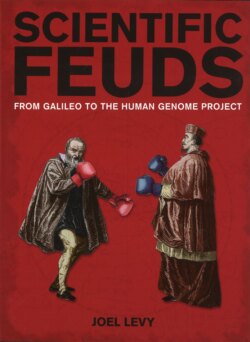Читать книгу Professional Hairstyling - Joel Levy - Страница 28
На сайте Литреса книга снята с продажи.
HOPEFUL MONSTERS: THE PUNCTUATED EQUILIBRIUM DEBATE
ОглавлениеThere have been – and are – ongoing significant debates within the science of evolutionary biology. One of the most high profile has been the clash between the traditional view that evolution is a gradual, constant phenomenon, with species engaged in a slow but continuous process of evolution, and alternative models, of which ‘punctuated equilibrium’ is the best known. Briefly stated, this model suggests that speciation (the evolution of new species) occurs in rapid bursts lasting just a few millennia, making them almost invisible in geological terms, punctuating long periods when species are well adapted to their environments and change little if at all (i.e. in a state of ‘equilibrium’).
Huxley was among the first to propose a form of this theory, writing to Darwin just before the publication of Origin to warn: ‘You have loaded yourself with an unnecessary difficulty in adopting Natura non facit saltum [Nature does not make leaps] so unreservedly.’ In 1940, émigré biologist Richard Goldschmidt proposed in his book The Material Basis of Evolution that most mutants thrown up by evolution would not survive, but that once in a while an extreme mutation would occur that would cause a ‘leap’ in adaptive fitness. Perhaps unwisely he labelled these leaps ‘hopeful monsters’.
Evolutionary biologist Stephen Jay Gould described how Goldschmidt’s theory was regarded as ‘anathema’, while Goldschmidt himself ‘became the whipping boy of [modern Darwinism]’. Together with the American palaeontologist Niles Eldredge, Gould revived the ideas of both Huxley and Goldschmidt in modified form, proposing the punctuated equilibrium model, partly in response to the troubling absence in the fossil record of the ‘transitional forms’ that had worried Darwin. Instead Gould had discovered fossil evidence of very rapid ‘explosions’ of speciation.
The debate between Gould and some of his opponents, most notably evolutionary biologist Richard Dawkins, has been portrayed as a latter-day continuation of the 19th-century geological debate between catastrophists and uniformitarians, but Dawkins himself argues that this is simply a crude misrepresentation of the arguments. He has dismissed Gould’s theory as ‘a minor gloss on Darwinism’, which ‘does not deserve a particularly large measure of publicity ... the theory has been ... oversold by some journalists.’ Dawkins claims that in fact there is no opposition between punctuated equilibrium and Darwin’s gradualism, and that ‘The theory of punctuated equilibrium will come to be seen in proportion, as an interesting but minor wrinkle on the surface of neo-Darwinian theory.’
Comparative anatomy. To bolster his argument that humans and apes had a common ancestor, Huxley compared human skeletons to those of other apes, as shown here in the frontispiece from his book, Evidence as to Man’s Place in Nature.
Sidgwick’s account of his response was clearly intended to portray Huxley in a heroic light: ‘On this Mr Huxley slowly and deliberately arose. A slight tall figure stern and pale, very quiet and very grave, he stood before us, and spoke those tremendous words – words which no one seems sure of now, nor I think, could remember just after they were spoken, for their meaning took away our breath, though it left us in no doubt as to what it was. He was not ashamed to have a monkey for his ancestor; but he would be ashamed to be connected with a man who used great gifts to obscure the truth. No one doubted his meaning and the effect was tremendous. One lady fainted and had to be carried out: I, for one, jumped out of my seat; and when in the evening we met at Dr Daubeney’s, every one was eager to congratulate the hero of the day.’
Huxley’s retort seems mild by today’s standards, but the audience clearly inferred that he was saying he would rather be an ape than a bishop. Is this what really happened? According to Ronald Clark, a biographer of the Huxley dynasty, ‘The details of what Huxley said differ as much as do those of Wilberforce’s speech.’ Huxley himself seems to have offered at least three different versions, and according to many accounts his immediate reaction to Wilberforce’s sally was to mutter to a companion, ‘The Lord hath delivered him into mine hands.’ He knew that Soapy Sam had overstepped the mark, and went for the jugular in his response. Contemporary accounts of the meeting record nothing of either Wilberforce’s ‘grandmother’ comment or Huxley’s loaded response.
